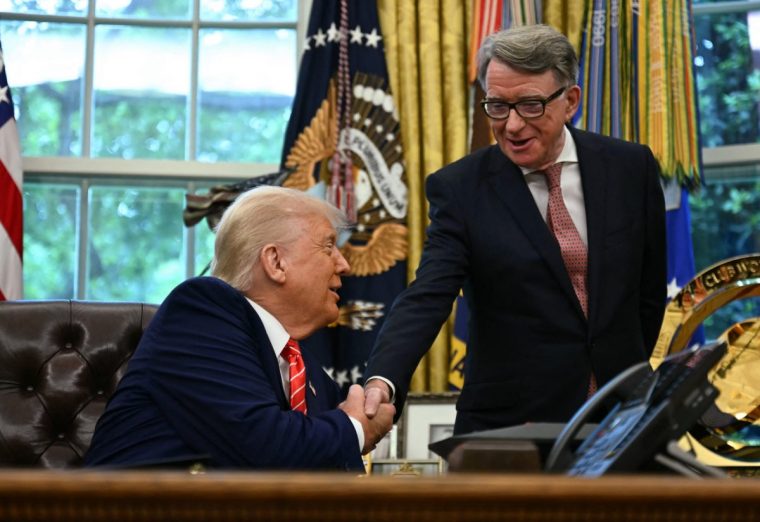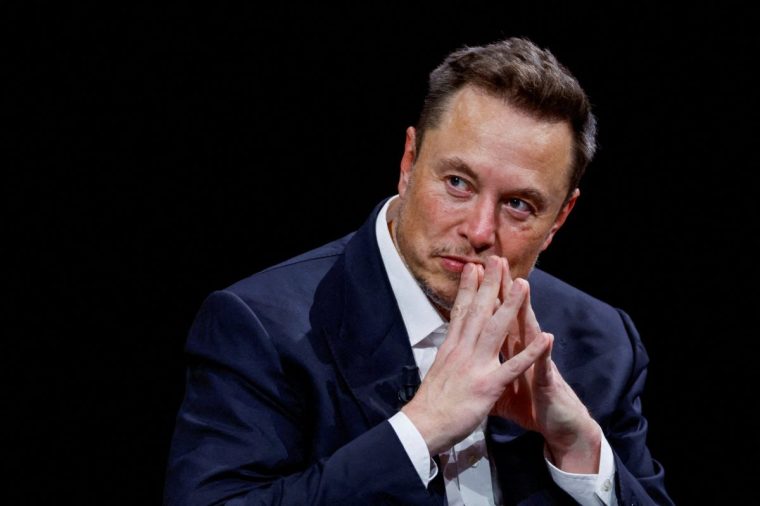The aroma of Sir Keir Starmer’s vulnerability is thick in the air in Washington
If Donald Trump has one attribute almost everyone can agree on, it is his unparalleled capacity to sense weakness in his opponents. Even before Air Force One touches down in the UK for this week’s state visit, the aroma of Sir Keir Starmer’s vulnerability is thick in the air in Washington.
The belated firing of Lord Mandelson as UK ambassador to the United States, and the jam into which the Prime Minister finds himself, has been widely noted at the White House.
The Americans never fancied Mandelson in the first place. His service as EU Trade Commissioner from 2004 until 2008 failed to offer much appeal to a US administration planning to deploy tariffs as a vehicle towards hoped-for prosperity.
Mandelson’s 2019 description of Trump as “reckless and a danger to the world” also led many observers to wonder whether his application for ambassadorial credentials would even be approved by the White House.
A month before Trump’s January inauguration, Chris LaCivita, co-chairing Trump’s transition team, suggested that Mandelson should “just stay home”, describing him as “an absolute moron”. To his likely regret, Starmer ignored that request.
The Americans avoided a diplomatic standoff by allowing Mandelson to move into the ambassadorial residence, and by the time he was fired nine months later, Andrew Marr reported that Trump was using the nickname “Sneaky Pete” to describe the UK’s top man in Washington.

Trump’s moniker for Starmer has not been publicly disclosed, but as Trump embarks on the state visit, he will be deeply alert to the Prime Minister’s travails.
In Trump’s own words, he is driven by a desire to learn his “adversary’s strengths and weaknesses”. In The Art of the Deal, he writes of “pushing and pushing to get what I want. Sometimes I settle for less … but in most cases I still end up with what I want”. This is a strategy Trump believes is rooted in his ability to identify his interlocutor’s soft underbelly.
As they prepare for this week’s pomp and pageantry at Windsor, many of Trump’s colleagues making the trip with him sense underbellies aplenty in the halls of No 10.
Members of the President’s inner circle have made no secret of their antipathy towards the Online Safety Act, and their insistence that – no matter how often the Prime Minister denies it – freedom of speech is under attack in Britain.
They will also have noted Starmer’s unthreatening response to Elon Musk’s virtual appearance at Tommy Robinson’s “Unite the Kingdom” rally over the weekend.
While Musk no longer walks among them in Washington, the men and women of the White House are certainly following the tech billionaire’s relentless attacks on the British government via his own social media platform, X. They will also have noticed that the UK has so far levied no sanction of any kind on Musk, despite his direct interference in the country’s domestic affairs.

The percussive drumbeat criticising Starmer’s government is growing steadily louder in Washington. Earlier this month, the President’s former political advisor, Steve Bannon, told the National Conservatism Conference that “England is heading to a civil war as we speak … England is heading to a very dark place. You know why? You’re going to have to head to a dark place to get your country back”.
Last month, Trump’s State Department put the UK on America’s naughty list. In its annual survey of human rights globally, it accused Britain of “significant human rights issues” including “credible reports of serious restrictions on freedom of expression”. The report claimed that in the past year “censorship of ordinary Britons was increasingly routine” and cited enforcement of UK laws after last year’s Southport riots as “an especially egregious example”.
So far, Trump has mostly left it to his top lieutenants to drive the narrative that the UK’s democracy is in decline and free speech is at risk. But earlier this month, he broke bread with Nigel Farage, inviting the Reform UK leader to the White House for lunch. Hours earlier, the MP for Clacton had told members of Congress that his home country was now on a par with North Korea.
The state visit to the UK is a feather in the cap of Trump. But once this week’s state visit is over, and the President has acquired his much-coveted pictures alongside the King, there is every likelihood that Trump will join his colleagues’ campaign to undermine a weakened Starmer, and hasten the day when Farage gets his chance to win the keys to No 10.
We could be about to witness the final days of summer in the Prime Minister’s non-confrontational relationship with Trump.
